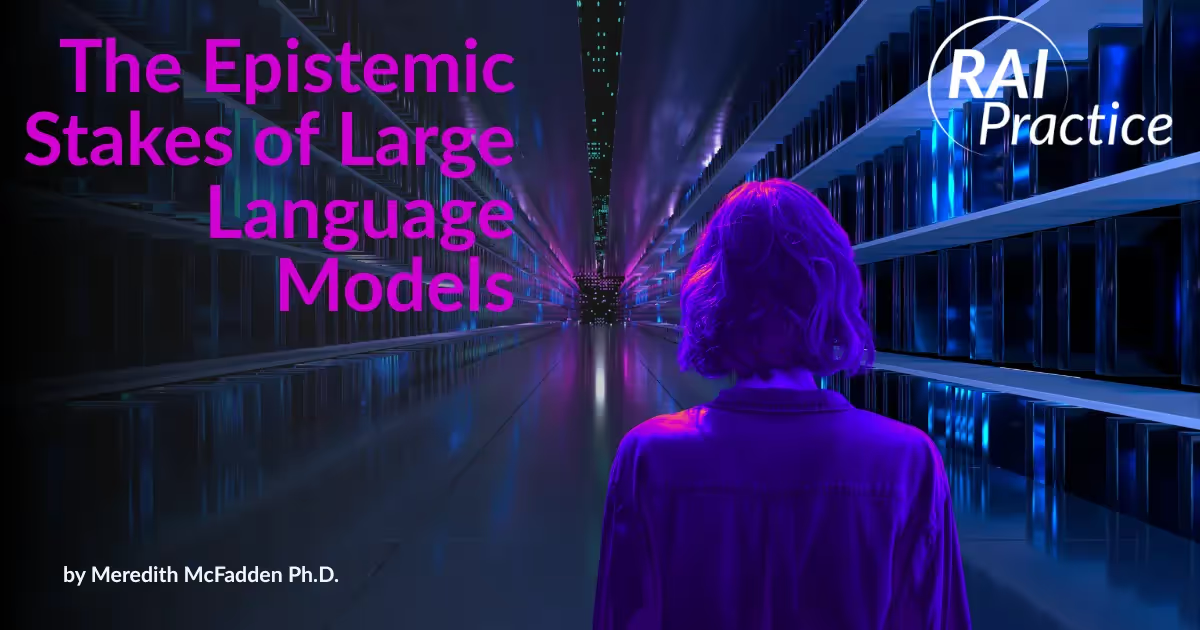Responsible AI Is a Business Imperative—Not Just a Technical Challenge
.avif)
AI’s Expanding Role: Why Responsible AI Is a Business Imperative
AI Is Everywhere—But Can We Trust It?
From retirement funds in Australia to supply chains in Georgia, from elite golf tournaments to aquaculture training in British Columbia, artificial intelligence is no longer an experimental frontier—it’s becoming infrastructure. In Australia, superannuation funds—responsible for managing billions in retirement savings—are betting on AI as a “long-term game-changer.” But they also recognize that AI systems need to be explainable, transparent, and fair to maintain member trust. As one fund executive noted, it’s not just about performance—“our members need to feel confident their data is handled responsibly."
Why Tradeoffs Are Inevitable in Responsible AI
In a short clip from the International Business Today podcast, we’re reminded that even the best-intentioned efforts to embed fairness, privacy, and transparency often involve tradeoffs. Dr. Cansu Canca, director of the Responsible AI Practice at Northeastern University, notes:
“What will happen, inevitably, is there will be a lot of tradeoffs. While you're trying to make things ethical—as you add more explainability, more privacy measures, more fairness measures—it is quite possible that you're going to lose some features. Maybe your efficiency or your accuracy will not be as high as before… There will be many occasions where you have to make value judgments and tradeoffs.”
This is why, she argues, Responsible AI is not about appointing an ethics board to give a thumbs-up or down from afar. It's about integrating ethical decision-making directly into development process, as part of the build—not the afterthought.
As IBM expands AI features for the 2025 Masters Tournament, and Georgia Tech revamps supply chains with AI, we face tradeoffs in each implementation of AI systems. When systems underperform due to overlooked fairness or privacy issues, it’s not just a technical failure—it’s an ethical failure resulting in business risk.
AI Risk Is Now Business Risk
As Canca warns in the podcast:
“Risks around AI are becoming business risks. That is what makes your company unreliable, untrustworthy. If you're not paying attention to the obvious risks… your customers will lose trust, you will not have the competitive edge… Retraining the AI system is extremely costly and time-consuming.”
Responsible AI in Action: Lessons Across Industries
The issue becomes even more urgent in sensitive domains like healthcare. A recent CBS News segment highlights how AI used in healthcare is vulnerable to socioeconomic biases—a red flag that directly affects diagnosis and care for underserved populations. Without adequate implementation of Responsible AI practices throughout the development and deployment of AI systems, these avoidable negative impacts go unaddressed until real-world harm surfaces.
Responsible AI, as outlined in Canca’s piece “What’s the difference between AI Ethics, Responsible AI, and Trustworthy AI?” is not just a label—it’s a structure. She says:
“The problem with terms like ‘ethical AI’ is that they can be used without any substance. Responsible AI must go beyond slogans—it should be built into the process.”
From Ethics to Engineering: Turning Judgment into Design
That process begins with how AI systems are designed, trained, and delivered. In a another short clip from the podcast, Canca lays it out clearly:
“In terms of how you choose your dataset, how you choose your model, how you choose your user interface—we want all of those ethical judgments to turn into [actual design] decisions. And that is a very important step. The ethics should never be separate from the technical work. It should inform the technical work.”
As AI becomes embedded in industries from finance to aquaculture, ethical design choices can’t be an afterthought. Australian pension funds are betting on AI’s long-term value—but they know that without public trust, there is no sustainable innovation. Meanwhile, aquaculture programs in British Columbia are incorporating AI into training for sustainable practices—but how those systems augment human agency and capabilities rely entirely on the choices made during development.
Responsible AI isn’t just a philosophical or a technical stance—it’s a practical business requirement. When ethics guide the engineering process, the result is not only a more efficient system that benefits society across the board but one that earns lasting credibility with users and stakeholders.
The Path Forward: Action Over Abstraction
AI is no longer just a technology challenge. It’s a societal one. Whether you’re managing data for a golf tournament, an ICU, or an ocean fishery, the same question remains:
Will the system be responsible—not just efficient?
Let’s Build AI Responsibly—Together
Responsible AI isn’t optional—it’s a business imperative. Partner with our team to ensure your organization builds AI systems that are responsible and future-ready.👉 Get in touch.

.avif)

.avif)
